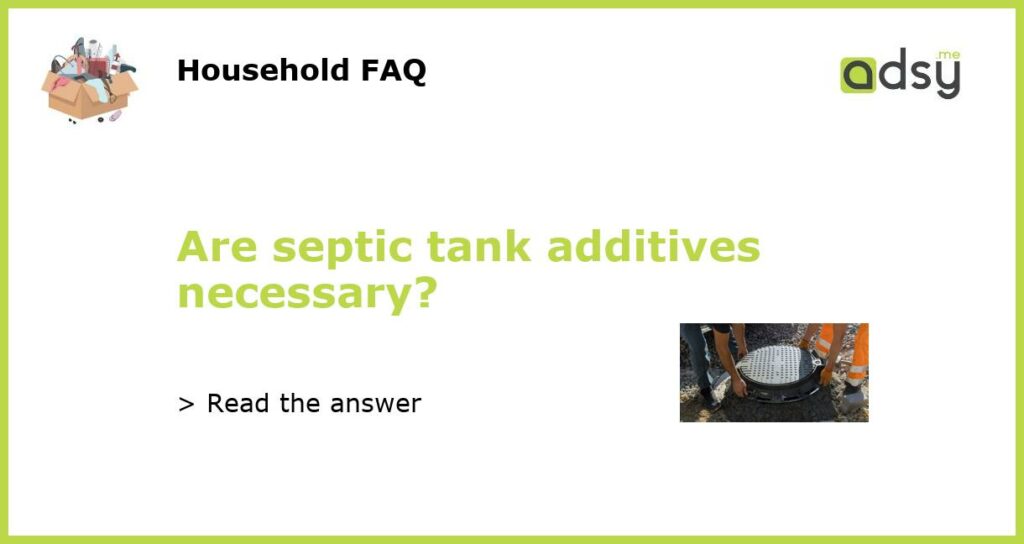What are septic tank additives?
Septic tank additives are products that are marketed as a way to improve the performance and longevity of septic systems. These additives typically come in the form of powders, tablets, or liquids that are added to the septic tank to enhance the breakdown of waste and reduce the accumulation of sludge.
The effectiveness of septic tank additives
There is a significant debate among experts regarding the effectiveness of septic tank additives. Some argue that these products can be beneficial in improving the efficiency of septic systems, while others believe that they are unnecessary and may even cause harm.
Proponents of septic tank additives claim that these products can enhance the microbial activity in the septic tank, leading to more efficient decomposition of waste. They argue that additives can help break down solids more quickly and effectively, reducing the need for frequent pumping and potentially extending the lifespan of the system.
However, critics argue that septic tank additives are often unnecessary and can even do more harm than good. They argue that septic systems are designed to naturally break down waste through the activity of bacteria and enzymes that are already present in the tank. Adding additional chemicals can disrupt this delicate balance and may even kill off beneficial bacteria, leading to a less-efficient system.
Potential risks of using septic tank additives
There are several potential risks associated with the use of septic tank additives. One concern is that these products can create a false sense of security, leading homeowners to neglect proper septic system maintenance. Regular pumping and inspection are essential for septic system health, and relying solely on additives may lead to neglect of these important tasks.
Another risk is that septic tank additives can be harmful to the environment. Some additives contain chemicals that can leach into groundwater or seep into nearby bodies of water. This can contribute to water pollution and can be harmful to aquatic life.
Alternatives to septic tank additives
Instead of relying on septic tank additives, there are several alternative methods that homeowners can use to maintain a healthy septic system.
Regular pumping is one of the most crucial maintenance tasks for septic systems. This helps to remove accumulated sludge and prevents backups and clogs. The frequency of pumping depends on factors such as household size and water usage, but it is generally recommended to have the septic tank pumped every 3-5 years.
Conserving water can also help reduce the strain on a septic system. This can be achieved by fixing leaky faucets, installing water-efficient fixtures, and being mindful of water usage habits.
Conclusion: Do you need septic tank additives?
In conclusion, septic tank additives are not necessary for the proper functioning of a septic system. In fact, they may even do more harm than good by disrupting the natural balance of bacteria and enzymes in the tank. Regular pumping and proper maintenance are the best ways to keep a septic system in good working order. If you have concerns about your septic system, it is best to consult with a septic system professional who can provide expert guidance and advice.

